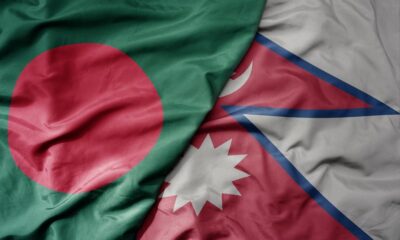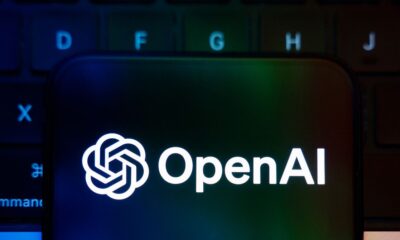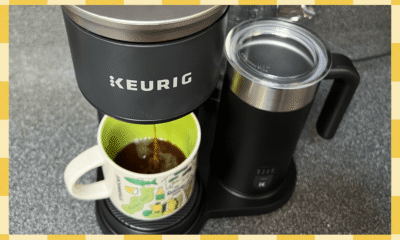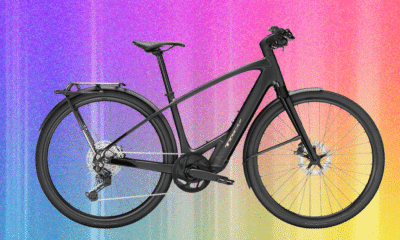Tech
Here Are the Housewarming Gifts I Love Having in My Home

Make a house into a home with these gifts, whether your recipient is moving into their first house or a great new apartment.
Source link
Tech
All-Clad Is the Expensive Gold Standard. The Factory Seconds Sale Makes It More Affordable

All-Clad Deals used to be difficult to find, but thankfully, the Factory Seconds Sale has come back around for a little while. These sales tend to only last for a few days—this one expires at midnight tomorrow, January 21—though they sometimes are extended. In any case, these sales offer a reliable way to score a solid deal on All-Clad kitchenware, which is normally very expensive. We love and swear by All-Clad, as do many professional chefs.
Factory Seconds are products with minor imperfections that still perform as intended. Sometimes an item is “second quality,” meaning it might have some blemishes or dents. Sometimes an item just has packaging damage. Every product page lists the exact reason for the “Factory Seconds” designation, as well as its warranty; most items are backed by All-Clad’s lifetime warranty. Note that you’ll need to enter your email to access the sale, and flat-rate shipping adds $10. Orders ship in 10 to 15 business days. We’ve highlighted our favorite deals below.
Make sure to check out our related buying guides, including the Best Chef’s Knives, Best Meal Kit Subscriptions, and Best Coffee Makers.
Best All-Clad Factory Seconds Deals
We include this pan at every possible opportunity when it’s on sale because it’s such a solid kitchen companion. Many WIRED Reviews team members have it in their kitchens. The shape allows you to make a pan sauce or sear up some steaks. The high walls prevent grease splatter, and you can use it like a wok or Dutch oven in addition to a regular ol’ pan. It’s dishwasher-safe for easy cleanup.
This roaster is a staple in my kitchen during the colder months of the year. It’s safe to use in the oven and under the broiler at up to 600 degrees Fahrenheit, and it has enough room for roasting meats or vegetables in large portions (it can hold up to a 20-pound turkey). You can also transfer it to the stovetop to whip up a quick sauce with the roasted drippings. The manufacturer recommends hand-washing.
This hard-anodized nonstick pan is versatile enough to make just about anything. Eggs, vegetables, a pan sauce, and stir-fries are all contenders. It’s made with a PTFE coating. Make sure not to get it too hot, and use nonstick-safe tools and hand-wash it to preserve that coating for as long as you can.
This nonstick pot has a PTFE coating and therefore should be hand-washed. It can be used to simmer, stew, or steam thanks to its tall sides and included lid. It also comes with a steamer basket for all of your vegetable and/or dumpling needs. The pieces nest together for easier storage.
So technically, this thing isn’t a spatula, but in my house that’s what we’d call it. Whether you’re Team Turner or not, nonstick-safe tools can be difficult to come by and they’re crucial to keep around if you’re cooking on nonstick cookware. I like having backups so I don’t have to constantly do dishes. This turner is heat-safe up to 425 degrees Fahrenheit and will come in handy for everything from eggs to grilled cheese sandwiches.
The exact reasoning for this being a Factory Seconds item isn’t listed, but a good cast-iron skillet is indispensable for every home chef. It has two pour spouts for easier siphoning or serving, and the finish is resistant to scratches and stains. The skillet is oven-safe up to 650 degrees Fahrenheit.
What Are All-Clad Factory Seconds?
The Factory Seconds Event is run by Home and Cook Sales, an authorized reseller for All-Clad and several other cookware brands. The items featured in the sale (usually) have minor imperfections, like a scuff on the pan, a misaligned name stamp, or simply a dented box. Every product on the website lists the nature of the imperfection in the title (e.g., packaging damage). You’ll need to enter an email address to access the sale.
While the blemishes vary, the merchant says all of the cookware will perform as intended. Should any issue arise, nearly every All-Clad Factory Seconds product is backed by All-Clad’s limited lifetime warranty. (Electric items have a slightly different warranty; check individual product pages for details.) We’ve used more than a dozen Factory Seconds pots, pans, and accessories, and they’ve all worked exactly as advertised. Just remember that all sales are final, and note that you’ll have to pay $10 for shipping. It’s also worth noting that the “before” prices are based on buying the items new, but we still think it offers a good indication of how much you’re saving versus the value you’re getting.
Power up with unlimited access to WIRED. Get best-in-class reporting and exclusive subscriber content that’s too important to ignore. Subscribe Today.
Tech
‘Veronika’ Is the First Cow Known to Use a Tool

Justice for Far Side cartoonist Gary Larson: A team of scientists has observed, for the first time, a cow using a tool in a flexible manner. The ingenuity of “Veronika,” as the animal is called, shows that cattle possess enough intelligence to manipulate elements of their environment and solve challenges they would otherwise be unable to overcome.
Veronika is a pet cow in Austria. Her owners don’t use her for meat or milk production. Nor was she trained to do tricks; on the contrary, for the past 10 years she has developed the ability to find branches in the grass, choose one, hold it with her mouth, and scratch herself with it to relieve skin irritation.
Until now, only chimpanzees had convincingly demonstrated the ability to employ tools to improve their living conditions. Recent studies also point to whales as the only marine animals capable of using complex tools. This European cow is about to join that exclusive group of ingenious animals.
Videos of Veronika circulating online caught the attention of veterinary researchers in Vienna. They visited the farm, conducted behavioral tests, and carried out controlled trials. “In repeated sessions, they verified that her decisions were consistent and functionally appropriate,” a press release stated.
Veronika’s abilities go beyond simply using a point to scratch herself, explain the authors of the study published in Current Biology. In the tests, the cow was offered different textures and objects, and she adapted according to her needs. Sometimes she chose soft bristles and other times a stiffer point. The researchers say she used different parts of the same tool for specific purposes and even modified her technique depending on the type of object or the area of her body she wanted to scratch.
Although they consider using a tool to relieve irritation “less complex” compared to, for example, using a sharp rock to access seeds, the specialists greatly value Veronika’s ability. For now, she demonstrates that she can decide which part of the tool is most useful to her. The finding suggests that we have underestimated the cognitive capacity of cattle, according to the authors.
Why Is Veronika So Skilled?
The team acknowledges that it’s still too early to say that all cows can use tools with the same skill as Veronika. For now, the researchers are trying to determine how this cow developed an awareness of her surroundings.
Researchers believe her particular circumstances played a role. Veronika has lived for 10 years in a complex, open environment filled with manipulable objects—a very different experience from that of cattle raised for milk and meat production. These conditions fostered exploratory and innovative behavior, they say. They are now searching for more videos of cattle using tools to gather further evidence about their cognitive abilities.
“Until now, tool use was considered a select club, almost exclusively for primates (especially great apes, but also macaques and capuchins), some birds like corvids and parrots, and marine mammals like dolphins. Finding it in a cow is a fascinating example of convergent evolution: intelligence arises as a response to similar problems, regardless of how different the animal’s ‘design’ may be,” said Miquel Llorente, director of the Department of Psychology at the University of Girona, who was not involved in the study, in a statement to the Science Media Centre Spain.
Tech
Met claims success for permanent facial recognition in Croydon | Computer Weekly

The Met Police has announced that its deployment of permanent live facial recognition (LFR) cameras in Croydon has led to 103 arrests, with the force claiming it has reduced crime in the local area by 12%.
Beginning in October 2025, the Met fixed 15 LFR-enabled cameras to street furniture in Croydon, claiming they would only be activated when officers are present and conducting an operation in the area.
The Met’s announcement comes just a week ahead of a judicial review against its use of LFR, which will assess whether it has been using the technology lawfully. The legal challenge was launched by anti-knife campaigner Shaun Thompson after he was wrongly identified as a suspect by the force’s LFR system, alongside privacy campaigners at Big Brother Watch.
While LFR is typically deployed by the force in an overt manner, with specially equipped cameras mounted atop a visibly marked police van to scan and compare people’s unique facial features against watchlists in real time, this marks the Met’s first covert deployment of the cameras that can be monitored by officers remotely.
In a press release, the Met claimed that running deployments without a van has increased the efficiency of its LFR operations, with an arrest being made on average every 34 minutes when in use, while also reducing the average time to locate wanted individuals by more than 50% when compared with van-based deployments.
Of those arrested, it added a third were for offences related to violence against women and girls, such as strangulation and sexual assault, with other arrests over recall to prison, burglary and possession of an offensive weapon.
“The increase in LFR deployments across crime hotspots in London is driven by its proven impact and success – with more than 1,700 dangerous offenders taken off London’s streets since the start of 2024, including those wanted for rape and child abuse,” said Lindsey Chiswick, the Met and national lead for LFR.
“This is why we are trialling a new and innovative pilot in Croydon,” she said. “It allows us to explore a different way of using facial recognition by operating it remotely and more efficiently. The amount of arrests we have made in just 13 deployments shows the technology is already making an impact and helping to make Croydon safer. Public support remains strong, with 85% of Londoners backing the use of LFR to keep them safe.”
The Met added that its pilot deployment of permanent LFR cameras will undergo an evaluation in the coming months to assess its effectiveness, but that there are currently no plans to expand its permanent deployment to other sites in London.
It also said the Met will continue to run engagement sessions with Croydon residents and councillors to explain how LFR works, outline the intelligence-led approach behind deployments, and set out the safeguards in place to protect privacy and rights.
However, in April 2025, in the wake of the Met’s initial announcement, local councillors previously complained that the decision to set up facial recognition cameras permanently took place without any community engagement from the force with local residents.
While the Met has further claimed that Croydon was selected for the permanent LFR deployment due to “its status as a crime hotspot”, local councillors also highlighted a pattern of racial bias in its choice of deployment locations.
“The Met’s decision to roll out facial recognition in areas of London with higher Black populations reinforces the troubling assumption that certain communities … are more likely to be criminals,” said Green Party London Assembly member Zoë Garbett at the time, adding that while nearly two million people in total had their faces scanned across the Met’s 2024 deployments, only 804 arrests were made – a rate of just 0.04%.
The Met Police’s roll-out of LFR in other boroughs has similarly taken place with little to no community engagement, and in some areas has occurred despite notable political opposition from local authorities.
Executive mayor of Croydon Jason Perry said in the Met’s press release, however, that the arrest figures show “that this pioneering technology is helping to make our streets safer”.
Broken windows in the panopticon
Perry added: “I look forward to continuing to work with the Met Police to tackle crime, as part of our zero-tolerance approach to fixing the ‘broken windows’, restoring pride in our borough and making Croydon a safer place for all our residents.”
Under the “broken windows” theory of policing, first posited by US criminologists James Wilson and George Kelling in the early 1980s, leaving even minor disorder unchecked (such as graffiti, antisocial behaviour or vandalism) encourages people to engage in more serious crimes.
While advocates of this approach therefore argue for the proactive, zero-tolerance policing of minor infractions as a way of instilling order and deterring more serious criminal conduct, critics argue it encourages aggressive or confrontational policing practices that disproportionally target poor and minoritised communities, ultimately breeding resentment against authorities.
In a recent interview with former prime minister Tony Blair, current UK home secretary Shabana Mahmood described her ambition to use technologies like artificial intelligence (AI) and LFR to achieve Jeremy Bentham’s vision of a “panopticon”, referring to his proposed prison design that would allow a single, unseen guard to silently observe every prisoner at once.
Typically used today as a metaphor for authoritarian control, the underpinning idea of the panopticon is that, by instilling a perpetual sense of being watched among the inmates, they would behave as authorities wanted.
“When I was in justice, my ultimate vision for that part of the criminal justice system was to achieve, by means of AI and technology, what Jeremy Bentham tried to do with his panopticon,” Mahmood told Blair. “That is that the eyes of the state can be on you at all times.”
LFR consultation on legal framework
In December 2025, the Home Office launched a 10-week consultation on the use of LFR by UK police, allowing interested parties and members of the public to share their views on how the controversial technology should be regulated.
While the use of LFR by police – beginning with the Met’s deployment at Notting Hill Carnival in August 2016 – has ramped up massively in recent years, there has so far been minimal public debate or consultation, with the Home Office claiming for years that there is already “comprehensive” legal framework in place.
However, the Home Office said in late 2025 that although a “patchwork” legal framework for police facial recognition exists (including for the increasing use of the retrospective and “operator-initiated” versions of the technology), it does not give police themselves the confidence to “use it at significantly greater scale … nor does it consistently give the public the confidence that it will be used responsibly”.
It added that the current rules governing police LFR use are “complicated and difficult to understand”, and that an ordinary member of the public would be required to read four pieces of legislation, police national guidance documents and a range of detailed legal or data protection documents from individual forces to fully understand the basis for LFR use on their high streets.
There have been repeated calls from both Parliament and civil society over many years for the police’s use of facial recognition to be regulated.
This includes three separate inquiries by the Justice and Home Affairs Committee into shoplifting, police algorithms and police facial recognition; two of the UK’s former biometrics commissioners, Paul Wiles and Fraser Sampson; an independent legal review by Matthew Ryder QC; the UK’s Equalities and Human Rights Commission; and the House of Commons Science and Technology Committee, which called for a moratorium on live facial recognition as far back as July 2019.
More recently, the Ada Lovelace Institute published a report in May 2025 that said the UK’s patchwork approach to regulating biometric surveillance technologies is “inadequate”, placing fundamental rights at risk and ultimately undermining public trust.
In August 2025, after being granted permission to intervene in the judicial review of the Met’s LFR use, the UK’s equality watchdog said the force is using the technology unlawfully, citing the need for its deployments to be necessary, proportionate and respectful of human rights.
-

 Tech1 week ago
Tech1 week agoNew Proposed Legislation Would Let Self-Driving Cars Operate in New York State
-

 Entertainment1 week ago
Entertainment1 week agoX (formerly Twitter) recovers after brief global outage affects thousands
-

 Sports6 days ago
Sports6 days agoPak-Australia T20 series tickets sale to begin tomorrow – SUCH TV
-

 Politics4 days ago
Politics4 days agoSaudi King Salman leaves hospital after medical tests
-

 Fashion4 days ago
Fashion4 days agoBangladesh, Nepal agree to fast-track proposed PTA
-

 Business4 days ago
Business4 days agoTrump’s proposed ban on buying single-family homes introduces uncertainty for family offices
-

 Tech5 days ago
Tech5 days agoMeta’s Layoffs Leave Supernatural Fitness Users in Mourning
-

 Tech6 days ago
Tech6 days agoTwo Thinking Machines Lab Cofounders Are Leaving to Rejoin OpenAI
















